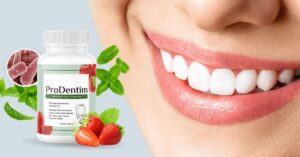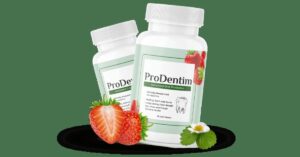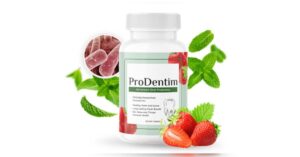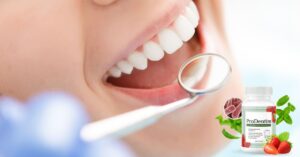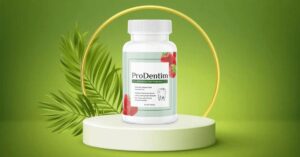This article discusses the top five supplements that enhance oral health by strengthening teeth and improving overall dental well-being.
Each of these supplements – calcium for strong teeth and bones, vitamin D3 for better calcium absorption, CoQ10 for gum health, fish oil for anti-inflammatory benefits, and probiotics for promoting a healthy mouth microbiome – plays a role in enhancing dental well-being.
The article will explore the benefits of these supplements for oral health, how they can be combined to achieve optimal oral health, and how they can be incorporated into a daily routine.
In This Article
What Are the Best Supplements for Teeth?
Maintaining good oral health and preventing oral diseases requires an adequate intake of essential vitamins and minerals. Nutritional supplements can help ensure the body receives necessary nutrients for strong teeth and healthy gums.
Vitamins like Vitamin C and Vitamin D are key in oral health, as they help strengthen tooth enamel and support gum health. Essential minerals like calcium and phosphorus are crucial for maintaining strong teeth.
A balanced diet rich in natural sources of these nutrients, such as citrus fruits for Vitamin C, dairy products for Vitamin D, calcium, and phosphorus, leafy greens for calcium, and nuts for phosphorus, plays a significant role in dental health.
Proper nutrition not only supports oral health but also helps prevent conditions like gum disease and tooth decay. It is essential to take a holistic approach to oral care, which includes a healthy diet and supplements as part of the basic oral care routine.
Recomended: Best Dental Health Supplement
1. Calcium
Calcium is a critical mineral for maintaining strong teeth and healthy gums, as it is essential in the formation and upkeep of tooth enamel and overall dental health.
Inadequate calcium intake can result in dental issues like weakened enamel, tooth decay, and gum disease. Calcium can be obtained from dairy products such as milk, cheese, and yogurt, as well as leafy green vegetables, almonds, and fortified foods.
Sufficient calcium intake is crucial not only for healthy teeth and gums but also for maintaining strong, dense bones. Including calcium-rich foods in your diet contributes to better dental health and overall well-being.
2. Vitamin D
Vitamin D is crucial for the body’s absorption of calcium, making it an essential nutrient for maintaining optimal dental health. It plays a key role in the mineralization of teeth and supports gum health by reducing inflammation in the gums, thus aiding in the prevention of gum disease.
Studies have linked low levels of Vitamin D to an increased risk of periodontal issues. By ensuring sufficient Vitamin D levels through sunlight exposure, consumption of fatty fish, Vitamin D-fortified dairy products, or supplements, individuals can enhance both their oral health and overall well-being.
Vitamin D also helps in preventing tooth decay, promoting the development of strong enamel, and preserving healthy gums.
3. Vitamin C
Vitamin C, also known as ascorbic acid, is crucial for maintaining healthy gums and preventing gum disease. It is an essential nutrient necessary for collagen synthesis, which plays a key role in preventing gum inflammation and bleeding.
Along with promoting collagen production, Vitamin C acts as a powerful antioxidant that shields gum tissue from oxidative damage, a contributing factor to periodontal disease.
Consuming Vitamin C-rich foods like oranges, strawberries, and bell peppers can help maintain healthy gums and boost their disease resistance.
Vitamin C also aids in wound healing, making it beneficial for oral injuries or post-surgical recovery. Ensuring sufficient intake of Vitamin C is a simple and effective way to enhance oral health.
4. Vitamin K2
Vitamin K2 is crucial for teeth and jaw development as it aids in proper calcium utilization in the body, shown to prevent tooth decay and maintain healthy tooth enamel. Along with assisting calcium absorption, Vitamin K2 helps regulate certain proteins essential for oral health.
These proteins safeguard the gums against inflammation and contribute to the maintenance of robust tooth enamel. Fermented foods like cheese, natto, animal liver, and egg yolks serve as excellent sources of Vitamin K2.
By including Vitamin K2-rich foods in the diet, overall dental health can be enhanced, reducing the risk of gum diseases.
5. Probiotics
Probiotics play a crucial role in maintaining a healthy mouth microbiome, which is essential for overall oral health. These live bacteria aid in preventing gum disease and cavities while promoting good oral hygiene.
By fostering the growth of beneficial bacteria in the oral cavity, probiotics combat harmful bacteria that contribute to plaque formation and tooth decay. Additionally, probiotics help alleviate gum inflammation, a key factor in gum disease prevention.
Food sources rich in probiotics include yogurt, kefir, kimchi, and specific dietary supplements tailored for oral health. Ensuring a healthy balance of these beneficial bacteria in the oral cavity through probiotic intake can significantly contribute to maintaining a robust and healthy oral microbiome.
How Do These Supplements Help Improve Oral Health?
Supplements enhance oral health by supplying essential nutrients that promote strong teeth, healthy gums, and overall dental well-being. Each supplement offers distinct advantages and plays a role in a comprehensive oral care regimen.
For instance, calcium is crucial for maintaining robust teeth and jawbones. Vitamin C supports gum health and helps prevent gum disease. Vitamin D aids in calcium absorption, essential for the health of teeth and bones.
Omega-3 fatty acids possess anti-inflammatory properties, reducing the risk of gum disease and enhancing overall oral health. Incorporating these supplements into a nutritious diet can enhance oral hygiene and prevent dental issues in the long term.
1. Calcium for Strong Teeth and Bones
Calcium is a key mineral that plays a crucial role in developing strong teeth and bones. It contributes to the structure of teeth by aiding in enamel formation and promoting good oral health.
Calcium is essential for bone density and strength, helping to prevent osteoporosis. Sufficient calcium intake not only benefits dental health but also enhances overall bone health.
Inadequate calcium levels can lead to weakened teeth and bones, increasing the risk of fractures and dental problems. Thus, maintaining proper calcium levels through diet or supplements is vital for optimal oral and skeletal health.
2. Vitamin D for Absorption of Calcium
Vitamin D is essential for the body to absorb calcium and facilitate the proper mineralization of teeth. It plays a crucial role in enabling the body to effectively utilize calcium, which is vital in preventing conditions like osteoporosis and tooth decay.
Insufficient levels of Vitamin D can result in inadequate calcium absorption, potentially leading to issues with tooth enamel and overall dental health. Therefore, maintaining a balance between Vitamin D and calcium intake is imperative for promoting strong teeth and ensuring good dental health.
3. Vitamin C for Gum Health
Vitamin C plays a crucial role in maintaining healthy gums as it serves as a co-factor in collagen synthesis and supports the structural integrity of gum tissue.
It helps prevent gum disease and contributes to overall oral health. Vitamin C acts as a potent antioxidant, reducing inflammation in the gums and aiding in the prevention of gingivitis and periodontal disease.
By promoting collagen synthesis, Vitamin C facilitates the repair and maintenance of gum tissues, ensuring their strength and health.
Regular consumption of Vitamin C-rich foods or supplements boosts the body’s immune response, safeguarding the gums against infections. The anti-inflammatory properties of Vitamin C also help alleviate gum irritation and promote optimal oral health.
4. Vitamin K2 for Teeth and Jaw Development
Vitamin K2 plays a critical role in the formation of teeth and jaws, facilitating the utilization of calcium to prevent cavities and maintain healthy tooth enamel.
This essential nutrient ensures the proper distribution of calcium throughout the body, promoting the proper formation of tooth structure and jaw development.
Inadequate levels of Vitamin K2 increase the risk of tooth decay and enamel hypoplasia, making it challenging for teeth to withstand daily mechanical stresses.
By aiding in the incorporation of calcium into the mineral matrix of teeth, Vitamin K2 enhances their functionality and longevity, serving as a crucial building block for optimal oral health.
Also Read:
5. Probiotics for a Healthy Mouth Microbiome
Probiotics play a crucial role in maintaining a healthy mouth ecosystem, enhancing oral health by reducing the occurrence of gum disease and cavities.
These beneficial bacteria are essential for promoting good oral hygiene as they can enhance the diversity of a person’s oral microbiome, displacing harmful bacteria that may contribute to oral health issues.
Moreover, probiotics support the body’s natural defenses, aiding in the prevention of plaque buildup and the alleviation of bad breath. They also assist in the absorption of vital nutrients necessary for gum health and overall well-being.
Incorporating probiotic-rich foods into one’s diet or utilizing supplements is a proactive measure to ensure a healthy oral microbiota and mitigate dental problems.
FAQs:
Why is calcium the best supplement for teeth?
Calcium is the best supplement for teeth because it is a major component of tooth enamel and helps prevent tooth decay.
What other supplements are good for teeth?
Other supplements that are good for teeth include Vitamin D, Vitamin C, and Vitamin K. They all play a role in maintaining healthy teeth and gums.
How does Vitamin D benefit teeth?
Vitamin D helps the body absorb calcium, which is essential for strong and healthy teeth. It also helps reduce inflammation and fight against gum disease.
Can taking too much of a supplement be harmful for teeth?
Yes, taking too much of a supplement can be harmful for teeth. For example, excessive amounts of Vitamin C can lead to erosion of tooth enamel.
Do supplements replace regular dental care?
No, supplements do not replace regular dental care. They can be used as a supplement to a good oral hygiene routine, but regular dental visits and proper brushing and flossing are still necessary for maintaining healthy teeth.


